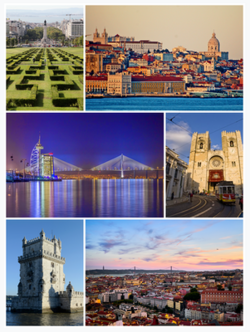Luville: Difference between revisions
Thrawsonia (talk | contribs) No edit summary |
Thrawsonia (talk | contribs) No edit summary |
||
| Line 7: | Line 7: | ||
| image_skyline = File:.Luville.PNG | | image_skyline = File:.Luville.PNG | ||
| image_caption = | | image_caption = | ||
| image_flag = File: | | image_flag = File:Luville Flag.png|30px | ||
| image_seal = File: | | image_seal = File:Luville COA.png|30px | ||
| image_map = | | image_map = | ||
| map_caption = | | map_caption = | ||
Latest revision as of 20:34, 7 March 2020
This article is incomplete because it is pending further input from participants, or it is a work-in-progress by one author. Please comment on this article's talk page to share your input, comments and questions. Note: To contribute to this article, you may need to seek help from the author(s) of this page. |
Luville
Luvilha | |
|---|---|
Municipality | |
 | |
| Country | |
| State | Template:Country data Oestebaía |
| Government | |
| • Type | City |
| • Mayor | Jorge Batista |
| Population (2018) | |
| • Municipality | 505,526 |
| • Urban | 1,132,071 |
| • Metro | 2,417,539 |
Luville (Produese: Luvilha) is a city on the Bay of Luville on the coast of Produzland. It is the capital and the largest city of the state of Oestebaía, with an estimated population of 505,526 within its administrative limits. Luville's urban area extends beyond the city's administrative limits with a population of around 2.4 million people.
Luville is one of the oldest cities in the world, predating other modern Liran cities by centuries. It was founded by Orthurians naming it Luvanis. Ruled by a series of tribes after the fall of Orthuria until the 6th century when it was taken by the Calmatians. When the gap between Aenicia and Calmatia was closed over the course of the middle ages, Luville became a highly contested city as one of the largest cities of west Orthuria. It was finally taken from Calmatian hands when the north bank of the Mazarico River was conquered by Cavale. Once Produzland unified it was one of the centers of Produese trade and culture, and still remains as such to today.

